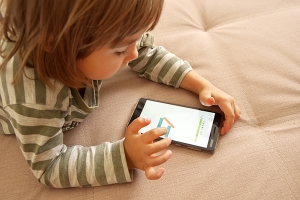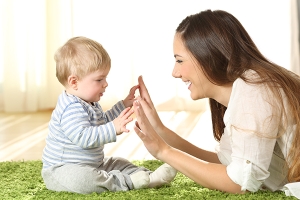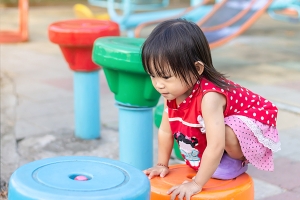How much affection is appropriate to display in front of the children?
“It is good for children to see warmth and a bond between parents,” notes Margaret Helding, PhD., president of the Society for Family Psychology, a division of the American Psychological Association. “It is reassuring to children.”
Susan Knell, Ph.D. from Spectrum Psychological Associates in Cleveland, Ohio sees the family norms as a deciding factor. “An affectionate family, one who displays warm physical contact among extended family and friends will condition a child to see this as acceptable behavior. If kisses are a normal greeting among relatives and friends, a child will think nothing of seeing his parents kiss hello or goodbye.”
In a healthy parental relationship, children accept certain displays of affection between their parents. This demonstrated admiration can support a child’s sense of well-being. However, Heldring notes, “Affection that is too sexual is uncomfortable for children and breaks a boundary. Too much would be a long kiss, intimate touches or certain spoken words such as ‘I can’t wait until later tonight’. Anything which brings a child into the intimate world of the parents’ love is not good.”
Affection is a signal to all children that there is something going on behind closed doors. Heldring says “That is ok. But it is overwhelming for child for a child to experience blatant displays of what should be happening in the bedroom while in the living room.”
In general, parents can safely respond to each other with the following gestures:
Holding hands. Whether in front of the evening’s television show or while walking together down the street, parents holding hands can make a child feel safe and secure. Seeing a warm bond between the parents (and extending the hand holding to the children) promotes the perception of a strong family unit.
Hugs. An embrace between parents shows acceptance and concern for each other. A warm hug, (not a full body clench) shows a child the parent’s willingness to comfort and support the other parent.
Kisses. A kiss to a child between his parents shows a deeper commitment. Seeing parents kiss (quick pecks only, please) furthers the impression of the parent’s caring for each other. Kisses upon returning home, leaving for work or in the parent’s first encounter during the day shows the value of the parent to the other, assuring the child that the parent will be missed during their absence and that their return is welcomed and appreciated.
Flirting. Flirting between parents, depending on the family norm, can demonstrate a dimension of romance in the relationship. Children see that a relationship should be fun and playful. Some parents may rub each other's shoulders, others may see a pat on the behind as acceptable.
Children of different ages will voice different reactions to parental affection.
Helding says, “The age of the child will provoke different reactions. A 4-year-old is all about the tactile: the physical touch and contact. But a 13-year-old, dealing with their own developmental and body changes, may feel uncomfortable in seeing displays of affection. But rest assured, despite their responses at any age, children will be secretly reassured by their parents’ love. “
Within a healthy parental relationship, children will benefit from the appropriate demonstration of affection between parents. Knell sees affection within a healthy marital relationship, as a positive role model for children. Knell finds “They can see what an adult, marital relationship should look like, and give them a basis for former relationships in their later years.”
So go ahead. Give your spouse that hug. It is good for your relationship, and ultimately good for your kids.
----------------------
Freelance writer Julie Hanahan is all about the love.















